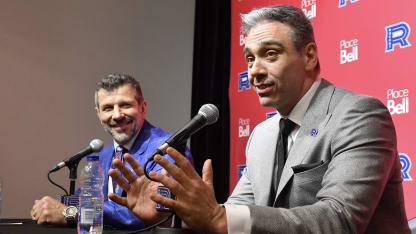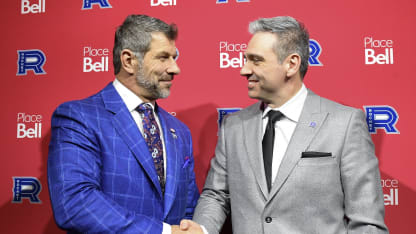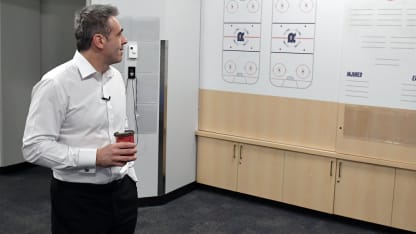You mentioned during your press conference that you're already familiar with some of the guys here. Are there some players, in particular, that you're eager to work with?
JB: I know pretty much everyone on the roster right now to some extent - some more than others - but I'm excited to work with all of them. I'll maybe set the bar a bit higher for some of them because I know their potential or I think I know what they need to do to have success in the American League and the next level, but that's exciting to me.
How would you describe the culture you would like to instill here?
JB: I want hockey players - I want guys who play hockey. That's important. I know that sounds obvious, but to me, a hockey player is a hard-working guy who pushes his limits and pushes himself and is a good teammate. A hockey player is someone who understands that everybody has a different path, but we all need to work together if we want to accomplish anything. That's what a hockey player is to me. Everything after that will fall into place, but I want guys who are passionate about the game and who want to give themselves the best chance to be in the NHL, and who will do that with the Laval Rocket.
In Boisbriand, with the Armada, you built a winning culture over time. How important is that when it comes to breeding confidence?
JB: The day we play without a scoreboard, I'll change my approach, but as long as there's a scoreboard, we'll play to win. I'm not a guy who ever looks at another lineup and says we have no chance. I always find a way to maximize what we get out of the group, and that won't be different here. I try to look for an edge or that little something that will be the difference between winning and losing. That's exciting to me. I don't back down from a challenge. But I'm not the one on the ice holding a stick. The players are the ones out there who have to be the difference-makers. That's the environment you need to create. We're here to win and I don't believe in playing just for the sake of development, and Marc agrees with that. Of course we develop players in the AHL, but if you want players to develop, they need to have success.





